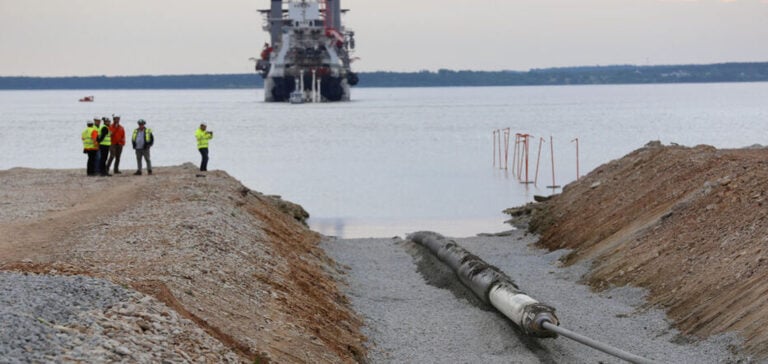The damage caused by the Finland-Estonia pipeline is being investigated by the police. According to the Finnish National Bureau of Investigation (NBI), the damage was not caused by an explosion, but probably by “mechanical force”. Finnish President Sauli Niinistö put forward the hypothesis of “external activity” as the probable cause of the leak. However, the NBI has not yet confirmed this theory and is maintaining an open approach, rejecting no hypothesis for the time being.
This damage poses a serious problem in terms of critical infrastructure security. The Finnish authorities are urging the companies and organizations in charge of these infrastructures to step up their preparation and monitoring.
Repair work
The pipeline operator, Gasgrid, also announced that the repair work would take at least five months to restore the pipeline to full operation. In addition, the Norwegian seismological institute Norsa detected an explosion in the Baltic Sea area where the pipeline is located, fuelling speculation about the possible causes of the damage.
Faced with this situation, NATO Secretary General Jens Stoltenberg expressed the Alliance’s determination to react decisively if the damage was the result of a “deliberate attack.”
Survey details
The investigation by the Finnish police is at a preliminary stage. The origin of the mechanical force that caused the damage remains unknown. Investigators are examining several hypotheses, including deliberate acts, accidents or natural causes.
This incident has major economic and geopolitical implications. Finland and Estonia rely heavily on this pipeline for their natural gas supplies. The disruption caused by this damage could have repercussions on their economy.
From a geopolitical point of view, if this damage proves to be the result of a “deliberate attack,” it raises questions about the security of Europe’s energy infrastructure and could lead to geopolitical tensions.
Why should you care?
The incident involving the Finland-Estonia gas pipeline highlights the crucial importance of energy infrastructure security in Europe. Damage, whatever the cause, has a direct impact on the energy supply of these countries, which can affect their economy and stability.
What’s more, this incident illustrates the interconnection between energy and geopolitical issues. European countries need to work closely together to ensure the security of their energy infrastructures, and react in a coordinated way to any threats.
All in all, the damage to the Finland-Estonia gas pipeline raises major questions and underlines the urgent need to safeguard the security of Europe’s energy infrastructure.






















